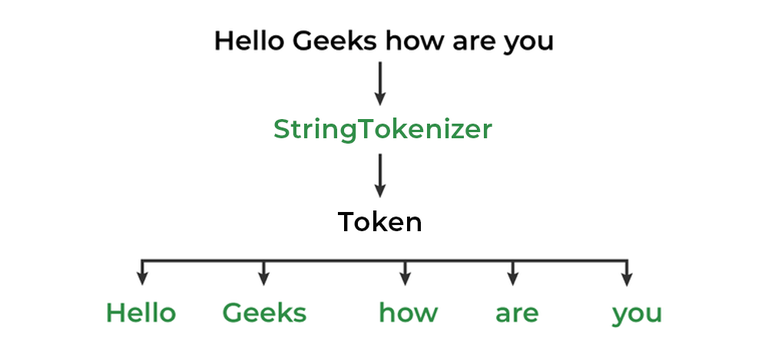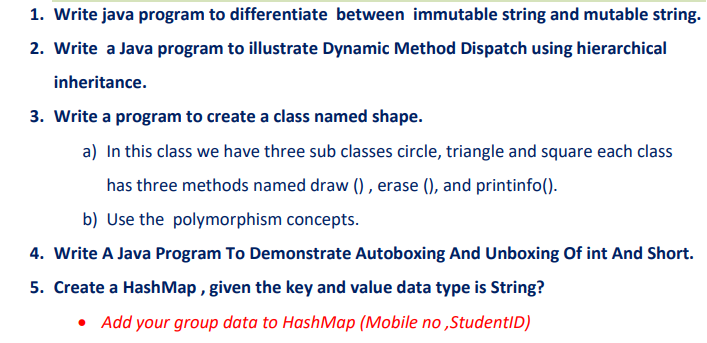Why Are Strings Immutable in Java? Enhancing Code Reliability
Why Are Strings Immutable in Java? Enhancing Code Reliability
Blog Article
What Is Unalterable Strings and Just How It Functions
In the realm of programming, understanding the principle of unalterable strings is paramount for creating durable and safe applications. Unalterable strings refer to strings that can not be altered after they are created, making sure data honesty and predictability within the code.
The Essentials of Unalterable Strings
Immutable strings, as a basic idea in shows, are personality sequences that can not be changed when they are created. This indicates that as soon as a string is appointed a worth, that value can not be changed. In languages like Python and Java, strings are immutable things, causing numerous ramifications in regards to memory administration and data integrity.
One of the crucial advantages of unalterable strings is that they offer a complacency in data control. Since the material of an immutable string can not be customized, it ensures that the original data continues to be intact, lowering the risk of unintentional adjustments during program implementation (Why are strings immutable in Java?). This property also streamlines debugging procedures, as programmers can trust that when a string is specified, its value will not be accidentally changed
When a brand-new string is created based on an existing one, instead than changing the initial string, the new value is kept independently. On the whole, understanding the basics of immutable strings is vital for understanding shows concepts and maximizing code effectiveness.
Benefits of Immutable Strings
Building upon the safety and efficiency benefits of unalterable strings, their benefits reach improving code dependability and simplifying simultaneous programming jobs. By being unalterable, strings can not be modified after creation, which removes the danger of unintended changes in the data they save. This integral immutability ensures that as soon as a string is developed, its value stays continuous throughout the program's implementation, minimizing the possibilities of bugs triggered by unanticipated alterations.
Furthermore, unalterable strings contribute to code integrity by making it less complicated to reason regarding the state of a program. Considering that strings can not be altered, developers can trust that a string will certainly constantly hold the exact same value, streamlining debugging and maintenance efforts. This predictability brings about a lot more stable and reliable codebases.

Application in Shows Languages
Within various programming languages, the consolidation of unalterable strings is a fundamental element that impacts exactly how data is taken care of and controlled within code frameworks. The application of unalterable strings varies throughout different programming languages, with each language providing its very own mechanisms to support this idea.

In comparison, languages like C and C++ do not have built-in assistance for immutable strings. Designers in these languages should manually apply immutability by implementing rules within their code to avoid straight adjustments to string items.
Ideal Practices for Dealing With Immutable Strings
When managing immutable strings in shows languages like Java and Python, adhering to finest practices makes sure safe and secure and reliable information manipulation. One of the key finest methods is to use StringBuilder or StringBuffer rather of straight adjusting strings, particularly when handling extensive concatenation operations. These classes supply mutable options for string adjustment, helping to prevent unneeded memory allocations and improving efficiency.
Another ideal practice is to utilize string interpolation or format operates provided by the language as opposed to hands-on concatenation. This not only boosts readability however additionally help in protecting against typical pitfalls such as unintended string adjustments. Furthermore, when working with sensitive information such as passwords or API keys, it is crucial to prevent saving them as ordinary message in immutable strings. Making use of protected storage space devices like char arrays or specialized collections for managing delicate information assists minimize safety risks related to unalterable strings.
Real-world Applications and Examples
Checking out sensible applications of unalterable strings in numerous markets exposes their significant effect on data integrity and system integrity. In the medical care market, click for more info unalterable strings play an essential duty in ensuring the safety and security and discretion of client information. By stopping unauthorized adjustments to sensitive details such as clinical records and prescriptions, immutable strings aid preserve conformity with rigorous personal privacy regulations like HIPAA.
Banks additionally gain from the immutable nature of strings to enhance the safety and security of consumer information and purchase records. Immutable strings help stop fraudulence and unapproved modifications to financial information, supplying a robust defense against cyber threats and ensuring the trust and confidence of clients.

Verdict
Finally, unalterable strings are dealt with and stable series of personalities that provide advantages such as thread safety and security and enhanced performance in programming. They are carried out in numerous programming languages to guarantee information honesty and protection. Ideal methods for collaborating with immutable strings include preventing direct alterations and using techniques that return brand-new string items. Real-world applications of unalterable strings include information file encryption, caching, and string Discover More Here manipulation jobs.
Unalterable strings refer to strings that can not be modified after they are developed, ensuring data find here honesty and predictability within the code. When a brand-new string is created based on an existing one, rather than modifying the original string, the brand-new value is kept individually.In languages like Java and Python, strings are unalterable by default, indicating that when a string item is produced, its value can not be changed - Why are strings immutable in Java?. Best techniques for working with unalterable strings consist of preventing direct modifications and using methods that return new string objects. Real-world applications of unalterable strings include data encryption, caching, and string adjustment tasks
Report this page